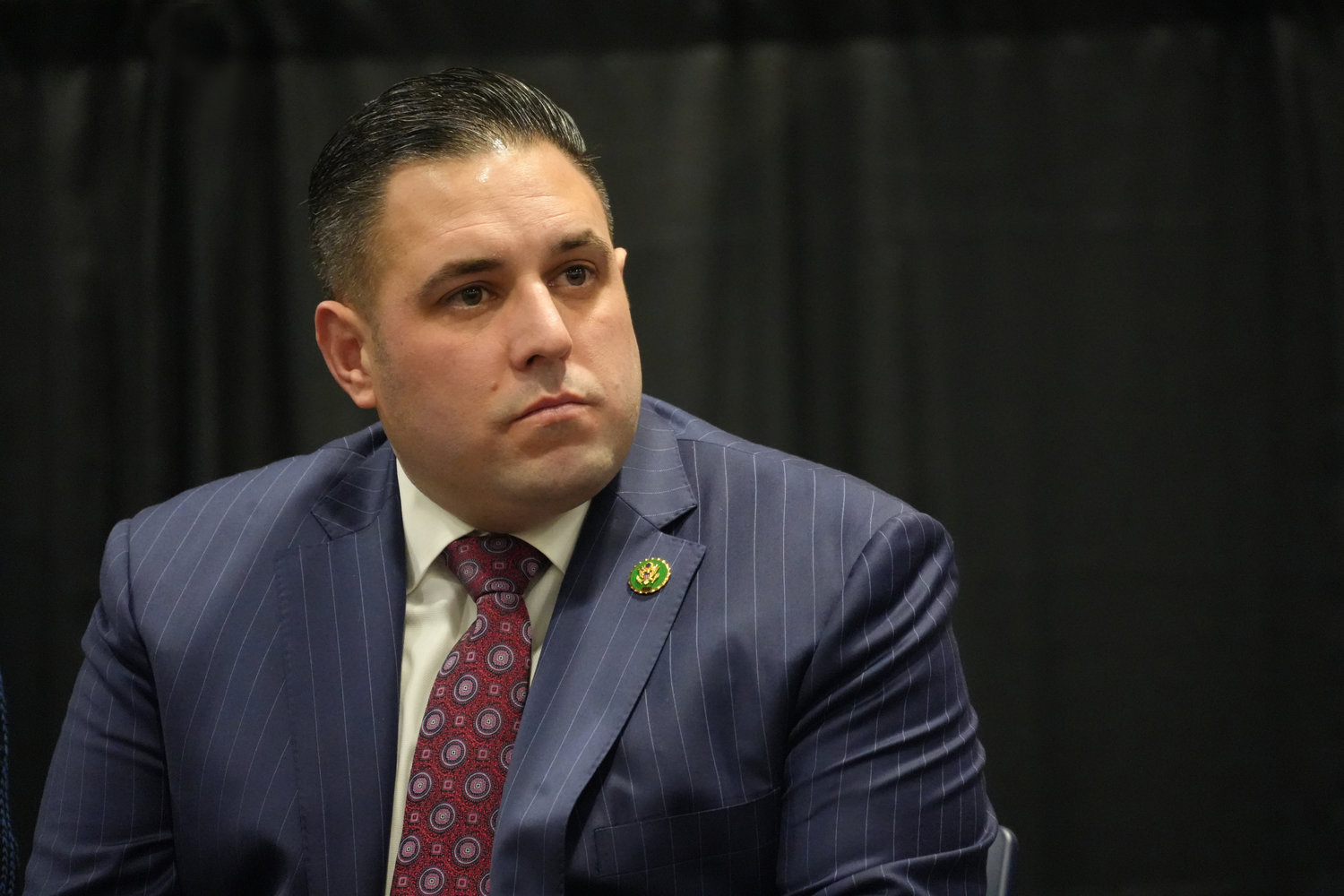Congressman Anthony D’Esposito heads to the U.S.-Mexico border, learns a lot about security
It was his second trip to the border that separates the United States from Mexico, yet U.S. Rep. Anthony D’Esposito still finds himself discovering something new.
He got a firsthand look at the border situation near El Paso, Texas, before he was elected to Congress. And now D’Esposito has returned — this time with several of his House Committee on Homeland Security colleagues.
D’Esposito’s take away? The scene is worse than before.
More than 200,000 people are trying to cross the border each month, according to a January report by Pew Research Center — numbers that haven’t been this high since the turn of the century. While D’Esposito believes people should have the opportunity to come to America, they still must “come through the front door” —legally.
And for him, that means more funding for border patrol agents and the resources he says they need to keep the country’s borders safe.
“Our border patrol agents are doing the best that they can with the resources that they have,” D’Esposito said. “But the Biden administration is failing to implement the laws or allow them to implement the laws that are in place.”
John Modlin, chief patrol agent for the Tucson sector with U.S. Customs and Border Protection, told a House committee last month that Border Patrol has just 19,300 people, where it actually needs 22,000. Biden said his federal budget package would grow the ranks to 23,000, according to Government Executive.
At the border, D’Esposito described a car rolling into the entrance to El Paso where border agents seized a significant amount of illegal narcotics. While in a helicopter overhead, D’Esposito watched several migrants attempt to scale border security structures.
The congressman spoke to those who live and work near the border — educators, business owners, farmers and ranchers — and says he heard about how what’s happening at the border is having a negative impact on their daily lives.
“You really can’t get an understanding of what’s going on there until you see it with your own eyes,” D’Esposito said.
Next month, D’Esposito’s House committee plans to roll out a border bill he says will focus on better physical protection of the border, funding for border patrol agents, as well as mental health resources.
“Across the nation we’ve seen one of the largest increases in law enforcement suicide, and that’s the effects of the job,” said D’Esposito, a former New York Police Department detective. “We need to do better to provide them with the resources that they need so we can keep our men and women in blue safe and healthy.”
Biden’s budget plan maps out nearly $25 billion for U.S. Customs and Border Protection as well as Immigration and Customs Enforcement — up roughly $800 million. Those funds, according to the White House, would hire an additional 350 border patrol agents while also investing in border security technology, combatting fentanyl trafficking, and hire hundreds more support staff members.
Biden is reportedly considering bringing back migrant family detention centers for asylum seekers who attempt to cross into the U.S. illegally — a controversial policy left over from the Trump administration he ended shortly after taking office.
“The ideas are great, and perhaps even their intention is well received,” D’Esposito said. “But if we don’t have the resources — if we don’t have the personnel to make sure that that those issues are taken care of at the border — then none of it matters.”
Much closer to home, D’Esposito joined several of his Republican colleagues to introduce a pair of legislative proposals aimed to prevent House members convicted of financial or campaign fraud from profiting off such federal violations and fabrications.
If passed, the No Fame for Fraud resolution would change rules governing the House, intending to ensure current members indicted for violations of the Federal Election Act of 1971 or any other offenses — which would cause them to lose their congressional pension — cannot financially profit off their story.
The second part of the package is the No Fortune for Fraud Act, intended to guarantee any current or former House members found guilty of violating the Federal Election Act of 1971 or other laws cannot make money off their story and will lose their pension.
These profits include compensation for biographies, media appearances or other creative works.
D’Esposito said it is “no secret” these proposals were inspired by his Nassau County colleague, the embattled U.S. Rep. George Santos, and some of the ongoing investigations centering around a number of aspects of his campaign and office, including fundraising.
Even with that direct connection, Santos still reached out hoping to co-sponsor the bills, D’Esposito confirmed.
“It is absolutely ridiculous,” the congressman said of Santos. “He loves the spotlight. He loves to be part of the news cycle. Whatever it is that George Santos intends to do, or other members of Congress on either side of the aisle, they will not be able to financially benefit from duping the American people.”
Santos has announced plans to run for re-election in 2024 — something D’Esposito says he will join Nassau County Republicans and its chair, Joe Cairo, to make sure it’s a run that does not succeed.






